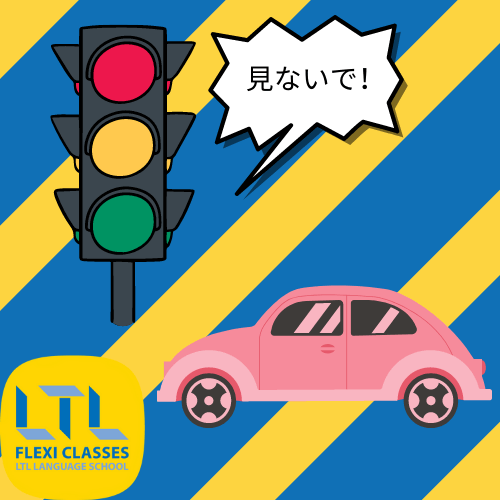Japanese Jokes // 25 to Help Level 🆙 Your Japanese
Japanese Jokes // The Good, the Bad, and the Plain Hilarious!

Are you interested in Japanese jokes?
Maybe you want to make your Japanese friend laugh, or be in on the joke of an anime you watched.
Whatever the reason, LTL has hunted for the best (beginner and intermediate-student friendly) Japanese jokes out there!
Take a look at our list of 25 of the best ones.
Japanese Jokes | 1-5
Japanese Jokes | 6-10
Japanese Jokes | 11-15
Japanese Jokes | 16-20
Japanese Jokes | 21-25
Japanese Jokes 1 to 5
We’ll break each of our Japanese jokes down into tables to all you to see the Kanji, Hiragana, Romaji and of course the English translation so you can study them as well as laugh along!
We’ll also provide explanations for some of them which might not seem obviously funny.
Of course translating humour from English to Japanese and vice-versa doesn’t always translate smoothly, so some context is needed.
Let’s get going with #1…
| Kanji | Hiragana | Romaji | English |
|---|---|---|---|
| Amazon アカウントを共有する 2 匹のサルを何と呼びますか。 | Amazon アカウントをきょうゆうする 2 ひきのサルをなにとよびますか。 | Amazon akaunto wo kyōyūsuru 2 hiki no saru wo nani to yobimasu ka。 | What do you call two monkeys who share an Amazon account? |
| プリームメートス。 | ぷりーむめーとす。 | Purimumetosu. | PRIME-mates. |
| Kanji | Hiragana | Romaji | English |
|---|---|---|---|
| テディベアはなぜお腹が空かないのですか? | てでぃべあはなぜおはらがすかないのですか? | Tedibea wa naze ohara ga sukanai no desu ka? | Why isn’t a Teddy Bear’s stomach empty (not hungry)? |
| — | いつもいっぱいです! | Itsumo ippai desu! | It’s always full! |

Let’s break down this joke!
テディベアはなぜお腹が空かないのですか? seems like it doesn’t make sense at first – at least in the English translation.
However, when you look at the Japanese, you start to laugh!
First, the grammar: テディベア (Teddy Bear) is the sentence subject, marked by the particle は.
なぜ、です、and か are all simple (why, is/to be, and a question marker), but what about の?
The の comes after お腹が空かない and is used to nominalize the action – i.e., make it a noun, so that you can put です after it.
However, the most interesting and funny part of the sentence is the expression お腹が空かない. It’s a phrase that comes from the expression お腹が空かします, meaning “I’m hungry” in Japanese and literally translating to “my stomach is empty.”
However, here it becomes “I’m not hungry,” or “my stomach is not empty” – which is why the response いつもいっぱいです!or “It’s always full!” works so well.
The Teddy Bear’s stomach is literally stuffed with fluff, of course, but the double wordplay of the joke also works because the Teddy Bear’s stomach is always full – meaning it’s never empty OR hungry! What a fun joke, right?
And remember the phrase お腹が空かします, too! It comes in handy.
| Kanji | Hiragana | Romaji | English |
|---|---|---|---|
| クモが好きなイベントは何ですか? | くもがすきなえべんとはなんですか? | Kumo ga sukina ebento wa nan desu ka? | What event does a spider like? |
| ウェビング。 | うぇびんぐ。 | Uebingu. | Webbing. |
| Kanji | Hiragana | Romaji | English |
|---|---|---|---|
| ガラスの周りで冗談が言えないのはなぜですか? | ぐらすのまわりにじょうだんがいえないのはなぜですか。 | Gurasu no mawari ni jōdan ga ienai no wa naze desu ka。 | Why can’t you tell jokes around glass? |
| ひび割れる可能性があります。 | ひびわれるかのうせいがあります。 | Hibiwareru kanōsei ga arimasu。 | Because it might crack. |
| Kanji | Hiragana | Romaji | English |
|---|---|---|---|
| ベンジャミン・フランクリンは電気を発見したとき、どのように感じましたか? | べんじゃみん・ふらんくりんはでんきをはっけんしたとき、どのようにかんじましたか? | Benjamin furankurin wa denki wo hakkenshita toki、dono yōni kanjimashita ka? | What kind of feeling did Benjamin Franklin have when he discovered electricity? |
| ショック! | しょっく! | Shokku! | Shock! |
Japanese Jokes 6-10
| Kanji | Hiragana | Romaji | English |
|---|---|---|---|
| 私立探偵 (P.I.) はどんな靴を履いていますか? | しりつたんていはどんなくつをはいていますか? | Shiritsutantei wa donna kutsu wo haiteimasu ka? | What kind of shoes does a private detective wear? |
| スニーカー。 | すにーかー。 | Sunīkā. | Sneakers! |
| Kanji | Hiragana | Romaji | English |
|---|---|---|---|
| 風が好きなゲームは何ですか? | かぜがすきなげーむはなんですか? | Kaze ga sukina gēmu wa nan desu ka? | What’s the wind’s favorite game? |
| ツイスター。 | ついすたー。 | Tsuisutā。 | Twister! |
| Kanji | Hiragana | Romaji | English |
|---|---|---|---|
| 屋根のジョークを聞きましたか? | やねのじょーくをききましたか? | Yane no jōku wo kikimashita ka? | Have you heard the roof joke? |
| 気にしないでください、それはあなたの頭の上にあります。 | きにしないでくさだい、それはあなたのあたまのうえにあります。 | Ki ni shinai dekusadai、sore wa anata no atama no ue ni arimasu。 | Don’t worry about it, it’ll go over your head. |

Let’s break down the joke!
First, it starts with 屋根 (roof) の (possessive particle) ジョーク (joke, a katakana word) を聞きましたか? (to hear, in the past form, with the particle “ka” marking it as a question).
This part is pretty simple: Did you hear the roof joke?
The reply is rather interesting, though!
It begins: 気にしないでください.
気にする is an expression meaning “to mind” or “to carry about” and carries a negative nuance. It is often used in the negative form, like it is here: 気にしない, meaning “don’t worry about it.” It’s a bit dismissive.
The ないでください form is a polite way of asking someone not to do something, and is used here since the speaker uses the ます-form with 聞きましたか.

This makes the English translation: Please don’t worry about it (but with a bit of a negative nuance to it).
The second part of the response is それはあなたの頭の上にあります。
それは (that, marked with the subject particle は) refers to the joke, あなた is “you,” 頭 is “head” and 上に is a spacial expression meaning “above,” “on top of” or “over”.
It’s followed by the polite form of the verb ある, meaning “to be,” which is used with inanimate objects.
This makes the literal English translation “it’s over your head” – however the better translation would be “it’ll go over your head” as that matches situation and dismissiveness of the speaker, but keeps the literal “the roof is over your head” piece as well.
So in full, the joke is: “Have you heard the roof joke? Don’t worry about it, it’ll go over your head.”

How To Learn Katakana (カタカナ) // Essential Things To Know
How to Learn Katakana? | Katakana is one of Japanese’s three alphabets. Katakana are generally more angular looking than Hiragana and focuses on loanwords.
| Kanji | Hiragana | Romaji | English |
|---|---|---|---|
| ミイラ (mummy) はどんな音楽を聴いていますか? | みいらはどんなおんがくをきいていますか? | Miira wa donna ongaku wo kiiteimasu ka? | What kind of music does a mummy listen to? |
| ラップミュージック。 | らっぷみゅーしっく。 | Rappu myūshikku. | Rap music |
| Kanji | Hiragana | Romaji | English |
|---|---|---|---|
| ランプが沈まなかったのはなぜですか? | らんぷはしずまなかったはなぜですか? | Ranpu wa shizumanakatta wa naze desu ka? | Why didn’t the lamp sink? |
| 軽すぎました。 | かるすぎました。 | Karusugimashita | Because it was too light. |
Japanese Jokes 11-15
| Kanji | Hiragana | Romaji | English |
|---|---|---|---|
| 12 月 31 日に牛はどこに行きますか? | 12 げつ31 ひにうしはどこにいきますか? | 12 getsu 31 hi ni ushi wa doko ni ikimasu ka? | Where does a cow go on December 31st? |
| ムーイヤーズ・イブ・パーティー。 | むーいやーず・えぶ・ぱーてぃー。 | Mūiyāzu・ebu・pātei | A Moo-Year’s Eve Party. |
| Kanji | Hiragana | Romaji | English |
|---|---|---|---|
| トウモロコシ畑 (corn field) で秘密を話してはいけないのはなぜですか? | とうもろこしばたけでひみつをはなしていけないのはなぜですか。 | Tōmorokoshibatake de himitsu wo hanashiteikenai no ha naze desu ka。 | Why can’t you talk about secrets in a corn field? |
| 耳が多すぎる。 | みみがおおすぎる。 | Mimi ga ōsugiru。 | Because it has too many ears. |
| Kanji | Hiragana | Romaji | English |
|---|---|---|---|
| なぜクッキーは診療所に行ったのですか? | なぜくっきーはしんりょうしょにいったのですか。 | Naze kukkī wa shinryōsho ni itta no desu ka。 | Why did the cookie go to the infirmary? |
| 彼は気分が悪くなっていた. | かれはきぶんがわるくなっていた。 | Kare wa kibun ga warukunatteita。 | He felt like he was going bad |

Joke Breakdown Time!
Like with many of the other jokes, the question is simple: なぜ (why) クッキー (cookie) は (subject particle) 診療所 (clinic, infirmary) に行った (to go, past tense) の (nominalizes action) ですか (to be + question marker).
Why did the cookie go to the infirmary?
The response is a neat bit of word play though: 彼は気分が悪くなっていた.
In Japanese, the expression 気分が悪い is used to say “I feel ill” or “I’m not feeling well.”
So of course, the cookie went to the infirmary because it wasn’t feeling well.
However, there’s a second meaning here: Since we’re talking about a cookie, saying 気分が悪い implies that it feels like it’s going bad, i.e. starting to get old/mouldy/crumbly etc.
In addition, 悪くなる is “to become bad” and 悪くなっていた means “(it) was becoming bad.”
So, when it says 彼は気分が悪くなっていた, it also means “it felt like it was becoming/going bad,” making the joke from the double wordplay!
Fun, right?

How To Learn Kanji // 7 Tips for Success 💪
How to learn Kanji? Generally, you’ll need to learn about 1,000-2,000 Chinese characters in Japanese. Here’s the best way to go about learning them.
| Kanji | Hiragana | Romaji | English |
|---|---|---|---|
| 鉛筆はどこで発明されましたか? | えんぴつはどこではつめいされましたか? | Empitsu wa doko de hatsumei saremashita ka? | Where were pencils invented? |
| ペンシルバニア。 | ぺんしるばにあ。 | Penshirubania。 | Pennsylvania! |
| Kanji | Hiragana | Romaji | English |
|---|---|---|---|
| トマトが赤くなったのはなぜですか? | とまとがあかくなったのはなぜですか? | Tomato ga akakunatta no ha naze desu ka? | Why did the tomato turn red? |
| サラダのドレッシングを見たから。 | さらだのどれっしんぐをみたから。 | Sarada no doresshingu wo mitakara。 | Because he saw the salad dressing. |
Japanese Jokes 16-20
| Kanji | Hiragana | Romaji | English |
|---|---|---|---|
| 幽霊ってなんでこんなに嘘つきですか? | ゆうれいはなんでこんなにうそつきですか? | Yūrei ha nande konnani usotsuki desu ka? | Why is a ghost such a bad liar? |
| あなたはそれらを見通すことができます。 | あなたはそれらをみとおすことができます。 | Anata wa sorera wo mitōsu koto ga dekimasu。 | Because you can see through everything. |
Joke Explanation Time!
The Japanese used in this joke can be a bit tricky, so let’s break it down together!
First, it asks: 幽霊ってなんでこんなに嘘つきですか?

While you may have seen って before as a casual quotation, here it’s a piece of N3 grammar that means “as for” – so, as for a ghost.
なんで is “why” and “嘘つき” is liar – but what’s こんなに exactly?
こんなに means “so, like this, in this way” and often has a negative connotation.
Here, it adds to the sentence so that it (very roughly) translates as: “As for ghosts, why are they such bad liars/why are they these kinds of (bad) liars?”
It’s definitely a joke where it’s important to understand the implied meanings of certain words! And what about the answer?
The answer is a bit simpler: あなたはそれらを見通すことができます。
あなた is “you,” それら is “they,” and 見通す is “to see through.” The grammatical piece is ことができる, which is used to say “to be able to do” and here adds the meaning of “to be able to see right through” when attached to 見通す.
So the overall meaning of the sentence is: “Because you can see right through them.”
Interesting joke, right?
| Kanji | Hiragana | Romaji | English |
|---|---|---|---|
| ハンバーガーはどこで踊る? | はんばーがーはどこでおどる? | Hanbāgā wa doko de odoru? | Where does a hamburger dance? |
| ミートボール。 | みーとぼーる。 | Mītobōru。 | A meatball. |
| Kanji | Hiragana | Romaji | English |
|---|---|---|---|
| 風船が嫌いな音楽は? | こうせんはきらいなおんがくは? | Kōsen wa kiraina ongaku ha? | What music does a balloon hate? |
| ポップ。 | ぽっぷ。 | Poppu. | Pop. |
| Kanji | Hiragana | Romaji | English |
|---|---|---|---|
| 時計を修理に出す場合は、前払いしないでください。 | とけいはしゅうりにだすばあいは、まえはらいしないでください。 | Tokei wa shūri ni dasu baai ha、mae haraishinai de kudasai。 | When you go to get your watch fixed, don’t pay before. |
| 時が来るまで待ちます。 | ときがくるまでまちます。 | Toki ga kuru made machimasu。 | Wait until the time comes. |
| Kanji | Hiragana | Romaji | English |
|---|---|---|---|
| 歯のないクマを何て呼ぶ? | はのないくまをなんてよぶ? | Ha no nai kuma wo nante yobu? | What do you call a bear without teeth? |
| グミベア。 | ぐみべあ。 | Gumibea. | A gummy bear. |
Japanese Jokes 21-25
| Kanji | Hiragana | Romaji | English |
|---|---|---|---|
| 信号機は車に何と言いましたか? | しんごうきはくるまになんといいましたか? | Shingōki wa kuruma ni nanto iimashita ka? | What did the traffic light say to the car? |
| 見ないで。私は変わろうとしている。 | みないで。わたしはかわろうとしている。 | Minaide. Watashi wa kawarō to shiteiru。 | Don’t look. I’m trying to change. |
While the question for this joke is pretty simple, the answer has a really useful piece of grammar!

First, the question: 信号機は車に何と言いましたか? しんごうき is “traffic light,” 車 is “car,” and 何と言いましたか is “what was said?”
は marks the traffic light as the speaker and the car as the object, making the English translation: What did the traffic light say to the car?
The answer is 見ないで。私は変わろうとしている。
見ないで is the shortened, casual form of 見ないでください, a grammatical expression (ないでください) that asks someone NOT to do something.
In 私は変わろうとしている, 変わる is used, which means “to change.”
However, it’s made into its volitional form 変わろう and とする is added to it, a grammatical structure which means “to try to” or “to start to” depending on the context.
Here, it means the “to try to” and coupled with the ている form and 私は makes the full English translation: “Don’t look. I’m trying to change.”
So the full joke becomes: “What did the traffic light say to the car? Don’t look! I’m trying to change.”

Japanese Loanwords 🤩 41 Fun Examples with Pronunciation
Japanese Loanwords are actually a great way to boost language learning motivation because it makes you realise you can still find similarities with English!
| Kanji | Hiragana | Romaji | English |
|---|---|---|---|
| スケルトンの好きな楽器は? | すけるとんのすきながっきは? | Sukeruton no sukina gakki ha? | What instrument does a skeleton like? |
| トロンボーン。 | とろんぼーん。 | Toronbōn. | The trombone. |
| Kanji | Hiragana | Romaji | English |
|---|---|---|---|
| なぜシンデレラはサッカーをできないの? | なぜしんでれらはさっかーをできないの? | Naze shinderera wa sakkā wo dekinai no? | Why can’t Cinderella play soccer? |
| いつもボールから逃げているから。 | いつもぼーるからにげているから。 | Itsumo bōru kara nigeteiru kara。 | Because she always runs away from the ball. |
| Kanji | Hiragana | Romaji | English |
|---|---|---|---|
| なぜ音楽の先生は車を始動できないのですか? | なぜおんがくのせんせいはくるまをしどうできないのですか? | Naze ongaku no sensei wa kuruma wo shidō dekinai no desuka? | Why can’t the music teacher start his car? |
| 彼のキーはピアノにあります。 | かれのきーはぴあのにあります。 | Kare no kī wa piano ni arimasu。 | His keys are in the piano. |
| Kanji | Hiragana | Romaji | English |
|---|---|---|---|
| 看板はどのように語りますか? | かんばんはどのようにかたりますか? | Kanban wa dono yōni katarimasu ka? | How does a blackboard talk? |
| 手話。 | しゅわ。 | Shuwa. | Sign language. |
There we have it – 25 of our favourite Japanese jokes!
Did you like them? Which was your favourite?
Why not tell us below in the comments. Or do you think you’ve got a better joke? Write it below and we’ll rate it out of ten!
BONUS | Like learning jokes in other languages? Then why not check out our favourite Chinese jokes, Russian jokes, and top Korean jokes also.
FREQUENTLY ASKED QUESTIONS
Where can I take classes online classes to learn Japanese?
Check out our Flexi classes.
We also offer Japanese, Korean, Mandarin, Cantonese, and more languages at any time of day with professional teachers!
Where can I find beginner resources for Japanese reading?
We’ve written an article all about Japanese reading practice.
How can I practice my Japanese listening skills?
No matter your level, learn how to improve your listening skills in Japanese by reading this article telling you some of our best tips and tricks.
Where can I learn more about Japanese grammar?
We have a very useful Japanese grammar bank that covers various parts of Japanese grammar.
What is the JLPT?
The JLPT is the Japanese Language Proficiency Test, which can be used to certify your Japanese skills for work, school, or personal progress.
Read our Guide to the JLPT to learn more!
What are the Japanese holidays?
There are a number of Japanese holidays, such as Tanabata, and you can learn more about what they are, when they’re held, and why they’re special at our Japanese national holidays page!
Want More From LTL?
WANT TO LEARN JAPANESE? Check out our online Japanese courses here.
We offer a 7-day free trial to all new students where you can study 24/7.
What about studying Japanese in Japan instead? We’ve got your back. Our Japanese courses in Tokyo can either be taken in small groups of no more than 5 students or individually for a more tailored experience.
We even offer incredible homestay experiences in Tokyo as well.
Come and be a part of this amazing community.









2 comments
とても面白くて大笑いしてしまいました。とても陳腐なので、まだ笑ってしまいます。笑
とてもよかったです!